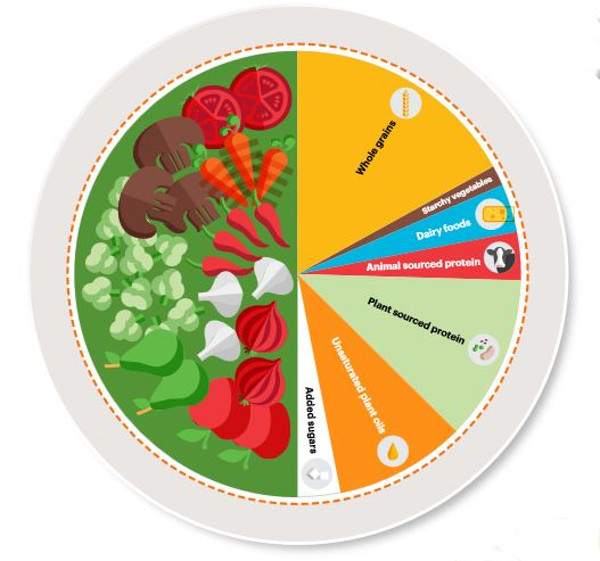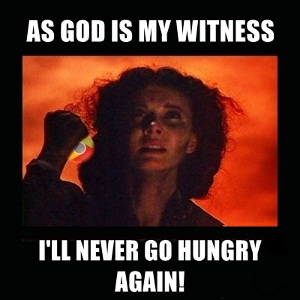A special commission partnering the EAT organization and the British medical journal Lancet has published the first comprehensive set of recommendations designed to meet the global challenge of feeding 10 billion people by 2050, and not destroying the planet in the process…
 The EAT-Lancet ‘planetary health plate’. I can do that. So can you.
The EAT-Lancet ‘planetary health plate’. I can do that. So can you.
EAT is an international non-profit dedicated to ending ‘malnutrition in all its forms’ by ‘holistically addressing all food-related’ issues. Lancet is the official journal of the British Medical Association. Together, they formed a Commission to examine all aspects of the monumental challenge the world faces between now at 2050, then the population is expected to reach 10 billion.
The Commission has reported and, though their recommendations are not all that surprising, the need to implement them is more urgent than ever.
The goal…
The Commission’s goal was to establish, “a global consensus on what constitutes healthy diets and sustainable food production and whether planetary health diets may be achieved for a global population of 10 billion people by 2050.”
The main recommendations…
The Commission examined a wide range of existing literature on the issues and determine that two overall challenges must be addressed: Establishing a healthy Diet that all people can access, and ensuring that diet is supplied by sustainable production systems.
The Diet…
The Commission’s Summary Report describes its ideal ‘planetary health dinner plate’ as consisting of: “by volume, approximately half a plate of Vegetables and Fruits; the other half, displayed by contribution to calories, should consist of primarily Whole Grains, Plant Protein sources, Unsaturated Plant Oils, and (optionally) modest amounts of Animal sources of Protein.”
The crux…
The problem is, we must start making these dietary changes now to ensure we meet the 2050 goal without irreparably damaging the environment.
My take…
I’ve been saying this for a long time, now, as have myriad scientific and observational studies. The problem is, it’s going to be very difficult to ‘turn the ocean liner’, as the old metaphor goes.
The producers of Animal Protein products have powerful lobby groups and wield a lot of voter power, influencing the policies of the elected government representatives who have the power to legislate changes in agriculture. And, more importantly, it’s vital to get people thinking about making voluntary changes in their diets in line with the EAT-Lancet recommendations. Demand drives supply.
Perhaps what is needed is an over-arching coordinated global effort like the ongoing program of conferences and discussions projected by EAT-Lancet over the coming months and years. Constant mention of the EAT-Lancet goals and recommendations in the news and on social media could go a long way toward gradually, with minimum ‘pain’, changing mass attitudes about what we eat and how it is produced.
~ Maggie J.

